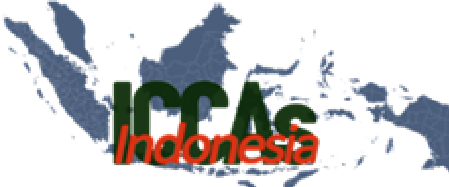
Bogor, 04/06/2024, On May 22, 2024, we all commemorated the International Day for Biological Diversity with the theme ““Be Part of the Plan” which calls for the government, Indigenous Peoples and Local Communities, non-governmental organizations, legislators, businesses, and individuals to highlight how they support the implementation of the Biodiversity Plan. Everyone has a role to play in contributing to becoming #PartOfThePlan.
In this context, biodiversity policies and planning in Indonesia are currently being driven through the KSDAHE Bill (Conservation of Biological Resources and Ecosystems) which is still in the legislative process in parliament, as well as the IBSAP document (Indonesian Biodiversity Strategy and Action Plan) which is currently in the process of drafting and agreement at the Ministry and Agency levels. IBSAP itself is an implementing policy that will continue the government’s commitment to the Kunming Montreal Global Biodiversity Framework (KM-GBF) to prevent and address the biodiversity crisis by 2030.
In the past 2 (two) years since 2022, WGII has observed that the process of drafting the KSDAHE Bill and IBSAP has not maximally involved Indigenous Peoples, Local Communities, and the Public as important actors in policy consultation and drafting. Moreover, substantively, the latest version of the KSDAHE Bill contains more negative content than the initial draft proposed by the Indonesian Parliament. Civil Society Organizations on January 19, 2024, have expressed their opposition to the KSDAHE Bill due to its potential to exacerbate the biodiversity crisis and human rights conflicts.
“The conservation practices that we have been doing for thousands of years, such as the protection system in Tana Ulen, have not been recognized in the KSDAHE Bill. On the other hand, this bill has the potential to worsen the situation in the village and trigger new conflicts with Indigenous Peoples. We hope that the government will not rush to pass the KSDAHE Bill if it does not align with our proposals, especially if there are sanctions for relinquishing land rights in the Preservation Area, this is a major issue” said Dolvina Damus representing the Dayak Lundayeh Indigenous Peoples.
Kasmita Widodo (Coordinator of WGII) stated, “Law No. 5/90 has marked a dark history of the establishment of conservation areas that have been carried out recklessly and disregarding the FPIC process. One of the latent conflicts that occurred in Ruteng in 2004 resulted from the overlapping conflict of customary territories with the Ruteng Natural Park, resulting in 6 deaths, 28 injuries, and 3 lifelong disabilities. Recently, this old conflict has resurfaced with the arrest of the Indigenous Leader (Teno Elder) Ngkiong Mikael Ane in Ngkiong Dora Village who was arrested and imprisoned for allegedly occupying the Ruteng Natural Park area. However, Mikael Ane and his ancestors have been living in that forest area before the Ruteng Natural Park existed and carried out activities. This case is just one of the many conflicts in the designation of conservation areas that have occurred throughout the archipelago”.
The KSDAHE Bill and IBSAP should be a hope to address the biodiversity crisis, climate, and conflicts in conservation management. These policies should recognize the contributions of Indigenous Peoples and Local Communities who have been protecting biodiversity through their local wisdom as encouraged in the KM-GBF commitments. On June 1, 2024, WGII will launch the latest data and record the registration numbers of AKKM (Community-Managed Conservation Areas) in the AKKM registration system at WGII, which has now reached 524,501 million hectares with the potential AKKM reaching 4.2 million hectares. This data represents only a fraction of the good and effective practices carried out by Indigenous Peoples and Local Communities. Compared to the data on customary territories registered in BRWA which has reached nearly 28 million hectares, the potential AKKM could be much larger.
Cindy Julianty, WGII Program Manager added, “From the joint analysis results between BRWA, WGII, and FWI (Forest Watch Indonesia), it shows that 72% of essential ecosystems (mangroves, karst, wildlife corridors, HCV areas, and key biodiversity




0 Komentar
Tinggalkan Balasan